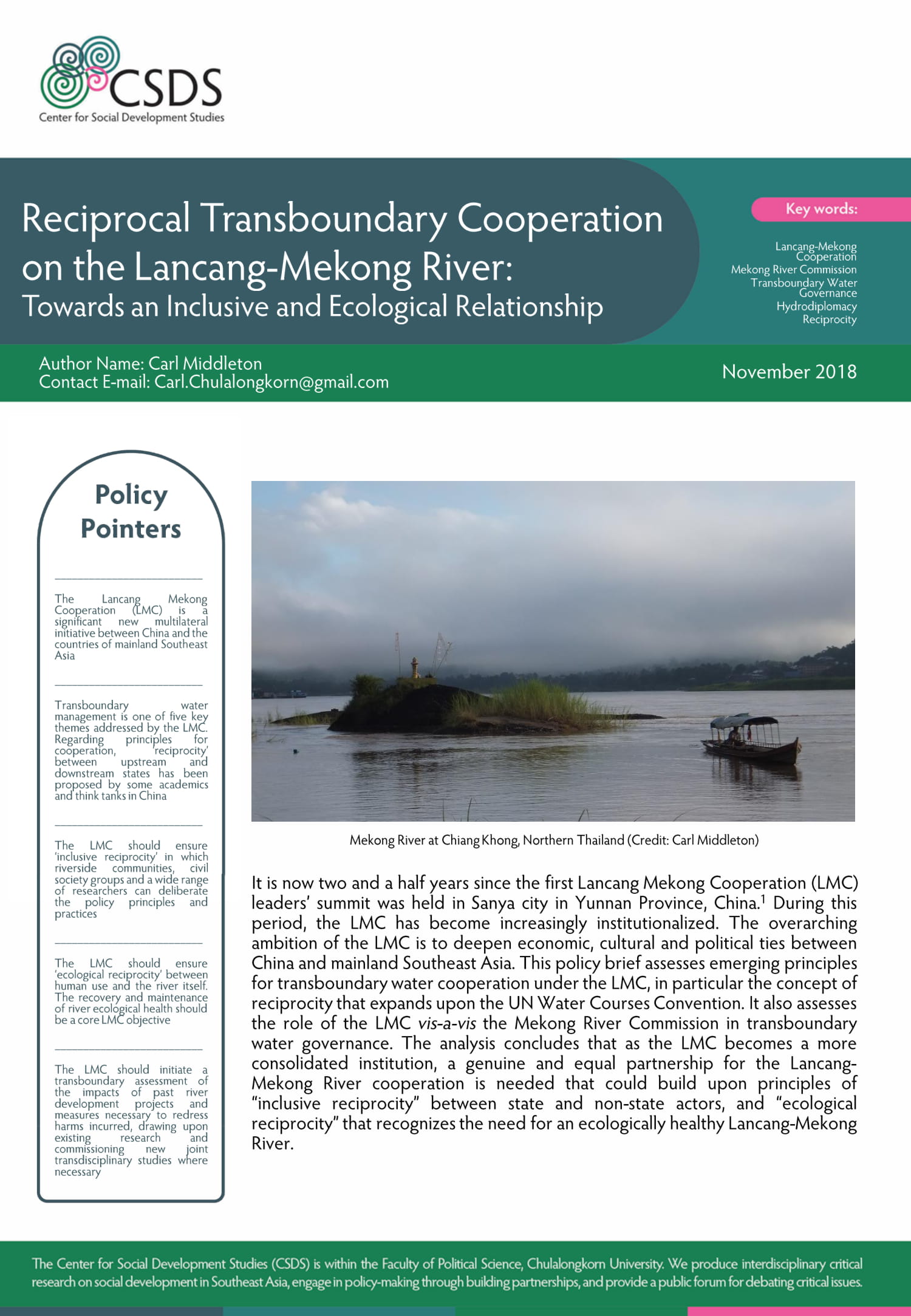REPORT: Strengthening Water Diplomacy Through Water Data Sharing and Inclusive Evidence-Based Transboundary Governance
/Publication date:
August 2021
Publication:
Strengthening Water Diplomacy Through Water Data Sharing and Inclusive Evidence-Based Transboundary Governance
Authors:
Carl Middleton, Anisa Widyasari, Kanokwan Manorom, David J. Devlaeminck, Apisom Intralawan
Download the report here.
In transboundary river basins, water data and information sharing are the foundation of trust building, evidence-based cooperation and water diplomacy between riparian states, and also with non-state actors including riparian communities and civil society. This research report examines what options exist for improved evidence-based transboundary water governance in the Mekong-Lancang basin building from recent improvements in basin-wide water data sharing. It presents a review of international best practice on water data sharing in international law, outlines existing institutionalized water data sharing arrangements in the Mekong-Lancang basin, analyzes how the availability of water data and its analysis influenced hydropolitics and geopolitics during the 2019-2020 drought, and presents recent empirical evidence from North and Northeast Thailand on riparian communities’ access to water data. The report concludes by identifying policy options on three themes: comprehensive and accessible scientific water data; diversity of water knowledge; and deepening water diplomacy and institutionalizing transboundary accountability.
Please contact Dr. Carl Middleton for more information.
Citation: Middleton, C., Widyasari, A., Manorom, K., Devlaeminck, D.J. and Intralawan, A. (2021) Strengthening water diplomacy through water data sharing and inclusive evidence-based transboundary governance. August, 2021. Center for Social Development Studies, Faculty of Political Science, Chulalongkorn University, and Cambodia Development Research Institute: Bangkok and Phnom Penh.
This report is part of our project Water Diplomacy in the Mekong Basin. You can visit the project page here.




